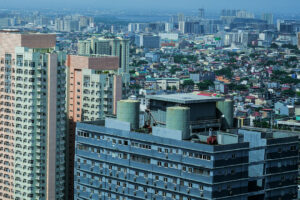JAPAN and Canada have not observed any pullback from investors looking at the Philippines despite the months-long corruption scandal involving flood control projects, their envoys said on Thursday, underscoring continued confidence in the country’s economic trajectory.
Japanese companies “remain very much committed” to operating in the Philippines, which Tokyo views as a high-growth market with “huge potential,” Ambassador Kazuya Endo told reporters during the 10th Pilipinas Conference in Makati City.
While transparency and accountability remain important considerations, he noted that he has “not heard any specific numbers” or indicators showing a decline in Japanese investor confidence since the controversy erupted in July.
Japan is among the Philippines’ largest trading partner, exporting $883.33 million worth of goods in September, data from the Philippine Statistics Authority showed.
“We also sometimes discuss the matters in a very casual tone with our colleagues from the private sector, but so far I don’t see any specific changes related to the posture [or] positions of the Japanese,” Mr. Endo added.
Japan is also the Philippines’ top official development assistance (ODA) provider, particularly involved in big-ticket projects, like the North-South Commuter Railway and the Metro Manila Subway. Mr. Endo noted that Tokyo implements strict auditing measures to prevent corruption.
Tokyo, he said, also supports flood management projects in many areas in the Philippines.
“ODA projects have been and will continue to be managed with very strict rules [and] regulations with strict surveillance and management systems,” the envoy noted.
“In general terms, we’ve also been working with the Department of Public Works and Highways (DPWH), for example, and with a lot of reshuffles of the personnel within the department.”
Canadian Ambassador to the Philippines David Hartman echoed Mr. Endo’s sentiments, noting that the posture of Canadian investors has not changed amid Manila’s corruption scandal.
Manila and Ottawa are currently negotiating a free trade agreement, eyed to be completed in 2026 as the Philippines assumes chairship of the Association of Southeast Asian Nations (ASEAN).
“These are ongoing negotiations or discussions. The government obviously is quite focused on addressing these issues to address the needs and the requirements of the Philippine people,” he told reporters in the same conference.
“At this stage, it has not been a factor in our discussions. Frankly speaking, we’re still very much at [the] early days,” he added.
Last year, trade between the two nations reached $3.2 billion, with the Philippines exporting $1.8 billion, data from the Canadian government showed.
“We continue to encourage opportunities in this country… Because the scale and scope of opportunity that exists in areas that are tremendously complementary between Canada and the Philippines are very, very robust,” Mr. Hartman said.
“At this stage, we’re really ramping up our conversations around free trade and engagement. The more you trade, the more you connect, the better it is.”
The Philippines is facing a high-profile corruption scandal involving alleged irregularities in public works projects, with accusations that government officials, lawmakers and contractors colluding to receive kickbacks from flood mitigation projects.
Mounting public anger over questionable flood control deals has sparked protests largely confined to the capital, raising risks of instability as the scandal weighs on a slowing economy and erodes business confidence. Some groups have called for President Ferdinand R. Marcos, Jr. to resign, with others even urging the military to overthrow him.
The Armed Forces of the Philippines (AFP) on Thursday said it was “fully committed to preserving democratic institutions,” assuring Filipinos it remained a “professional, disciplined and non-partisan” organization focused on upholding the government.
Top generals from the armed forces’ seven unified commands said in separate statements they rejected calls for a coup.
“In a united declaration, the commanders of the combat commands affirmed that the military remains steadfast in its constitutional mandate to uphold the rule of law and ensure full respect for civilian authority,” the Philippine military said.
The Southeast Asian nation is no stranger to coup attempts, having seen more than a dozen military mutinies since the restoration of democracy in 1986, after the late former President Ferdinand E. Marcos, Sr. was overthrown by a popular street uprising.
“Amidst the currents of political speculation and noise, we appeal to the general public in the NCR — the very heart of our nation — to remain calm and discerning,” Major General Gregorio B. Hernandez, commander of the National Capital Region (NCR) Command said in a statement on Nov. 16.
The release of statements from top generals comes more than a week ahead of the Nov. 30 anti‑corruption protests to be led by civil groups, and follows a rally in the capital staged by a mega church that drew hundreds of thousands of people. — Chloe Mari A. Hufana and Kenneth Christiane L. Basilio

